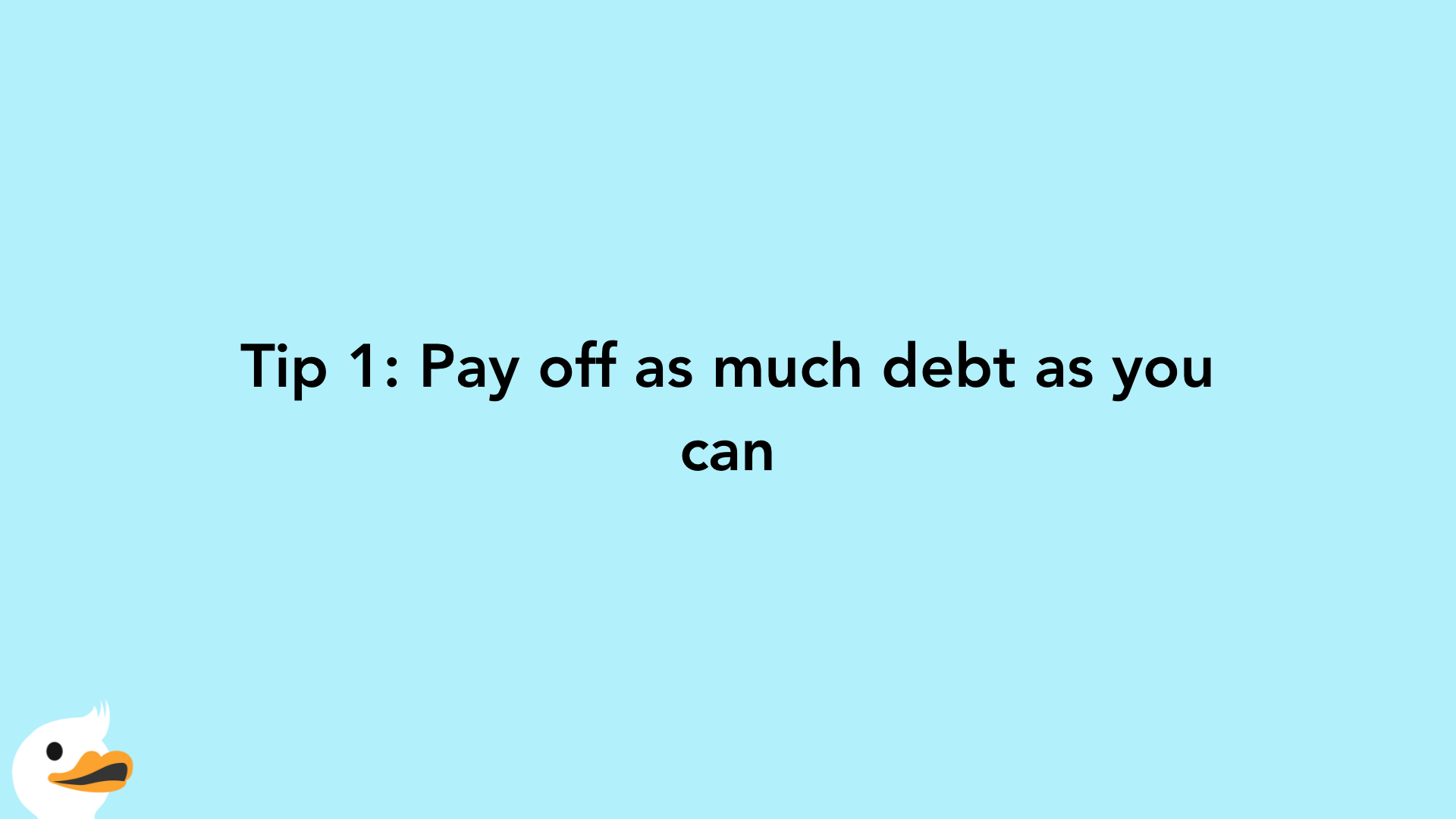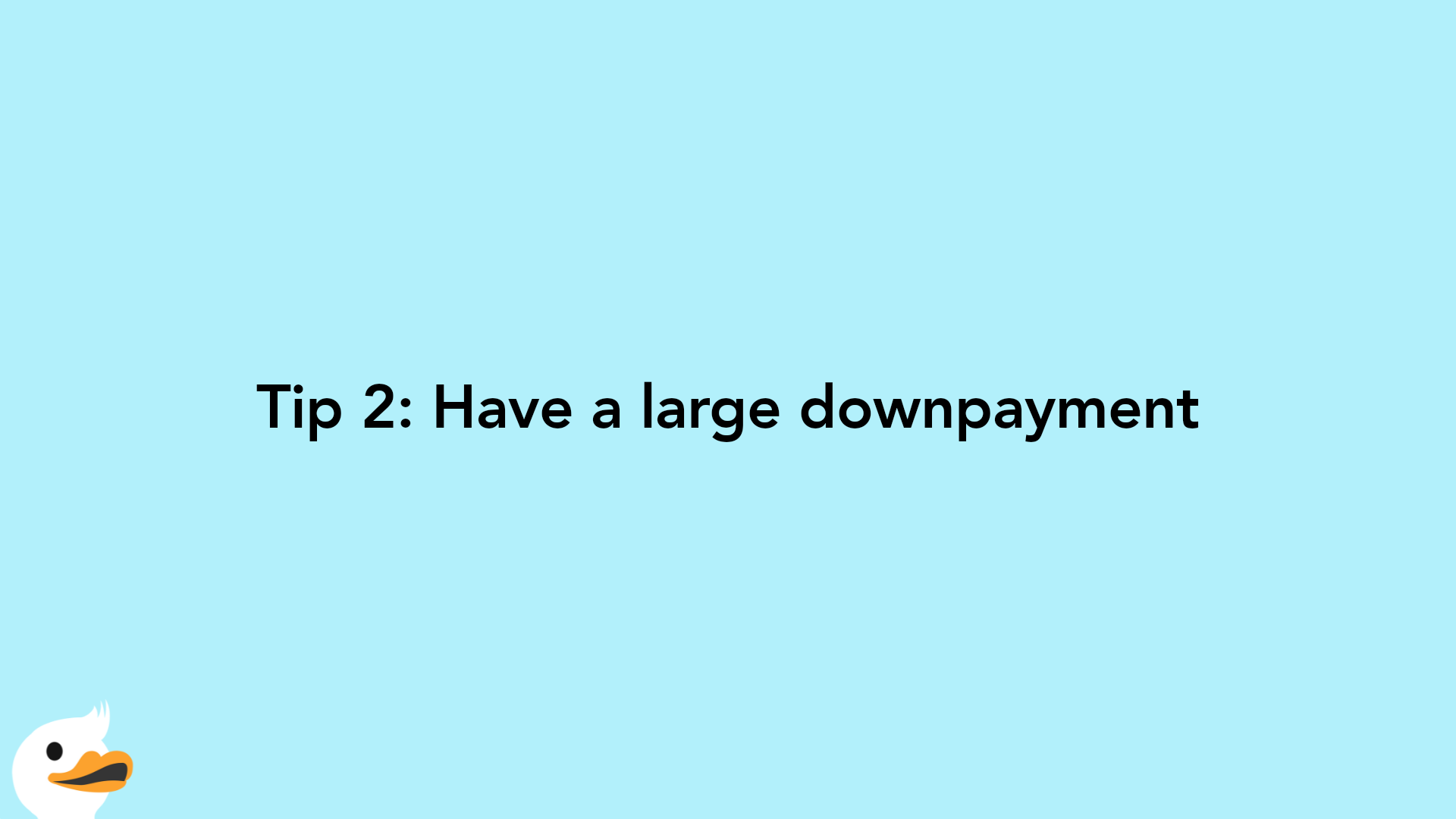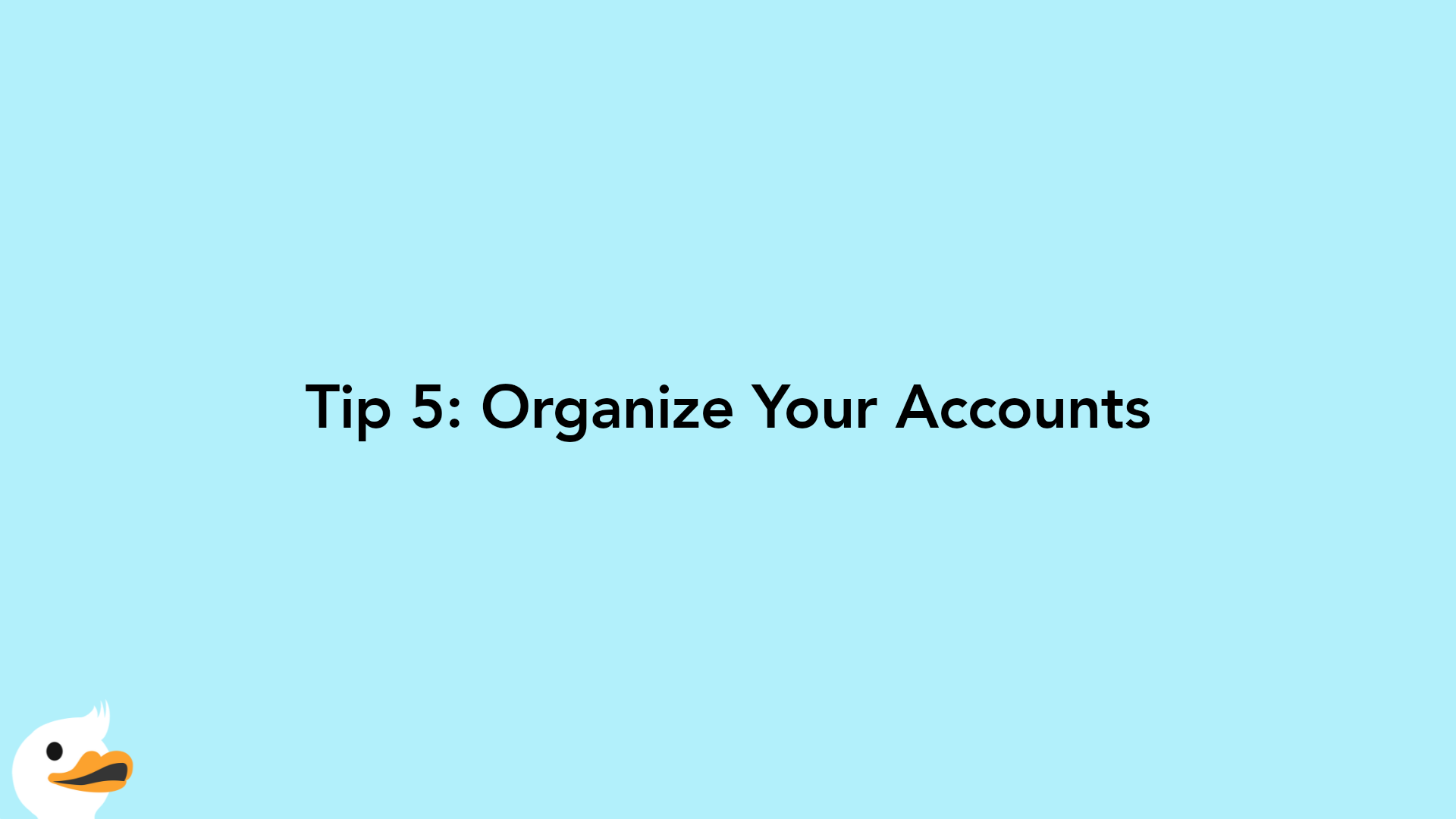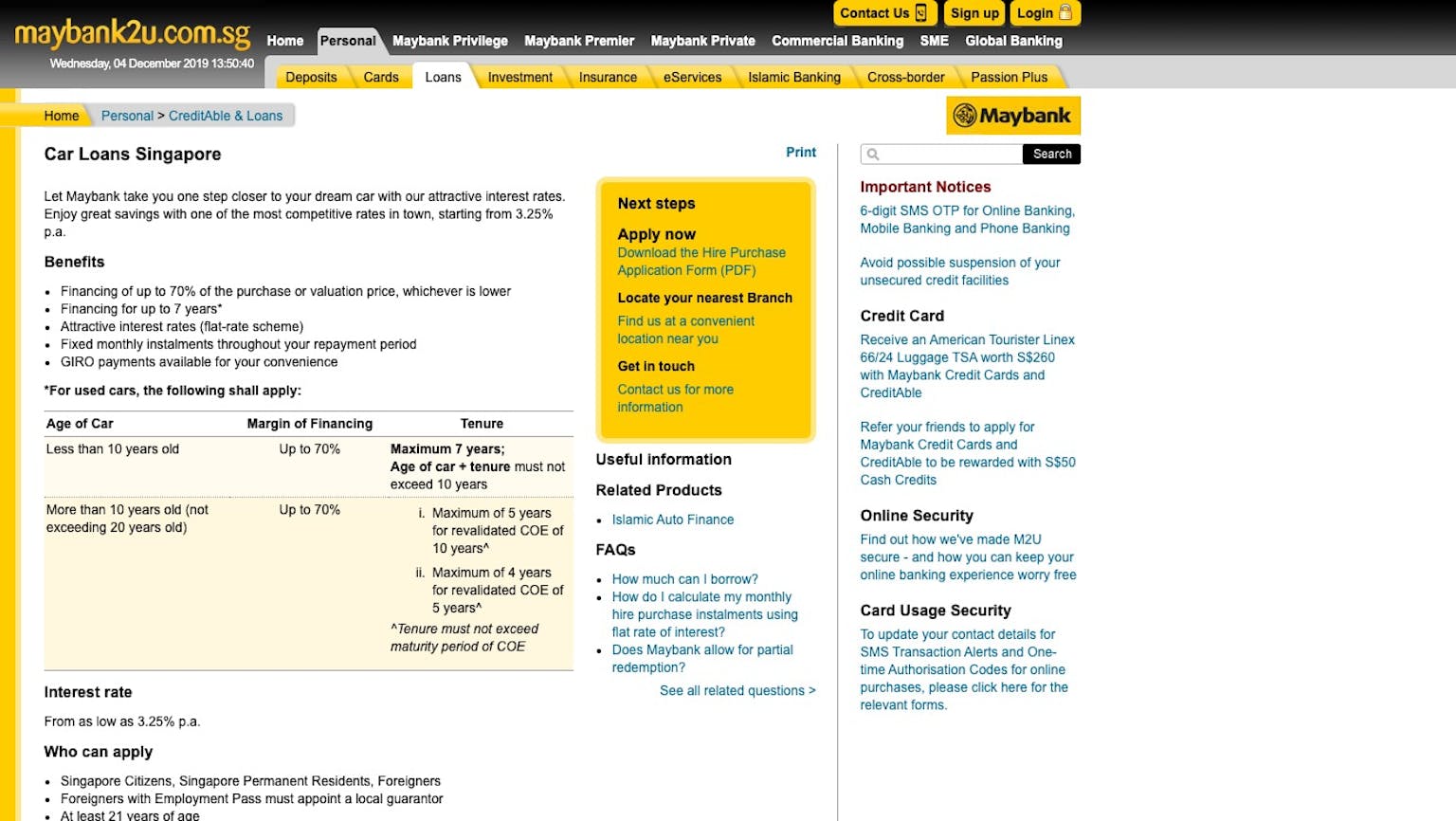After jumping through hoops to stay at the same job and address for years, pay your credit card bills in full and on time, and get all the required documents together, you want the maximum amount approved for your home loan. Here are a few tips to make you more attractive to lenders and increase your approval amount.

fizkes/shutterstock.com
Tip 1: Pay off as much debt as you can

The more debt you have, the less money the bank will approve. Lenders look at how much you already owe. If you already have existing debt, that means your ability to repay their loan is diminished, because part of your monthly income is already accounted for. In other words, pay off your car loan, any student loans, your credit cards, and any other debt you may have first. Furthermore, this is just good practice because interest rates are charged based on time. Clearing your debt before taking on new debt is more cost-effective, fiscally more responsible, and makes you more attractive to lenders.
Tip 2: Have a large downpayment

If you have been saving for this loan, you should have a sizable downpayment. The larger your down payment, the less you need to borrow, the lower your monthly payment and shorter the loan tenure. Down payments are a safeguard for the lender, in case the collateral, say your house or car, for example, drops in value. Furthermore, the borrower has demonstrated that he or she is committed to the loan because he or she now has “more skin in the game.”
Tip 3: Improve Your Credit Score

Your credit score or credit rating is a letter grade generated by a mathematical algorithm using data from your credit history. It is intended to predict risk and how likely you will default on your credit commitments. The best credit grade possible is AA. Grades of BB and CC indicate that you may have several delinquencies in your payments. Unfortunately, D grades and below means you have defaulted in the past. If you get a CX score, this means that you don’t have much credit activity. To improve your credit score, you should get a credit card and use it responsibly. This means paying it back in full and on time every month.
Ironically, keeping a low balance on your credit card, but not using it, also builds credit. This is called "credit utilization." It is a ratio of your outstanding credit card balances to your credit card limits. Essentially, it calculates the amount of credit you are using. Low credit utilization is an important factor in your credit rating. On the same note, asking to raise your credit limit is also a good idea because it helps decrease your credit utilization. You can also pay your bills twice a month. The first time you pay will lower your statement balance. That way, the second time you pay, it looks like you actually used less credit that month. Additionally, don't be quick to close any existing credit cards because this will temporarily drop your score.
Tip 4: Don't Have Too Many Credit Cards

This tip contradicts tip 3 a little bit. It's a catch 22. Having too many credit cards with too high of a limit looks bad to a lender because you have the ability to run those credit cards up. If you suddenly decided to max out all your credit cards, your debt-to-income ratio would make you an extremely high-risk borrower. On the other hand, you need to have credit cards and a high credit limit to build your credit score, which is also important. The best way to handle this situation is to build your score early on, way before you apply to take out your loan. Then, slowly close accounts that you don't use. Your credit score will temporarily drop, but it will come back up as you continue to pay your bills. After a period of time, when your credit rating recovers, you will be free to apply for that loan with a glowing credit recommendation.
Tip 5: Organize Your Accounts

This is sound advice for those who are self-employed. Lenders will need to see evidence of your accounts and income for at least two years. The more you earn, the more attractive you are to the bank. This is because the amount of loan you are eligible for is directly dependent on your income. However, a salaried employee is viewed to be more stable than someone who is self-employed. As a result, you will need to organize your accounts and PROVE that have your affairs in order.
Tip 6: Choose a Longer Loan Tenure

By increasing your loan term, you would be lowering your monthly repayment. This can boost your borrowing power because mathematically, your parents are now more affordable. However, remember, the longer the loan tenure, the more interest you will end up paying overall.
Tip 7: Get a Co-Signer or Co-Borrower

A co-signer or guarantor is a backup payer. They promise to repay the loan if the primary borrow cannot. A co-signer helps borrowers with poor credit or for some reason is a higher risk borrower. The bank or lender evaluates the co-signer's creditworthiness, income, and assets. Typically, the co-signer does not have any ownership interest in what the loan is being used for. Therefore, usually, the co-signer or guarantor is a family member who takes the risk to help the borrower. A co-signer's credit score can be impacted if the borrower doesn't make payments. The most common example of a co-signer is a parent co-signing for his or her child's student loans.
A co-borrower or a joint applicant applies for the loan with the primary borrower. He or she is equally responsible for repaying the loan. The advantage of this is that now the bank will see both of your salaries, making the loan seem much more affordable. The most common example of a co-borrower is a couple applying for a mortgage loan together. Each borrower is responsible for repaying the loan and have an ownership interest in the property.
Tip 8: Be Mindful Of Your Age

The age of an applicant plays a small factor in getting a loan. Of course, you must be at least 21 years old to apply for a loan. However, banks also look at the number of working years that an applicant has left. For example, a bank is more willing to offer a 30-year-old applicant a mortgage loan for 25 years, rather than a 50-year-old applicant. This is because the younger applicant has 25 additional working years to pay off the debt. On the other hand, an applicant who is 21 may find it difficult to get a loan because he or she may not have enough saved, employment history, or credit history.
Tip 9: Don't Shop Around Too Much

It's always good to see what different lenders can offer you and which one can give you the best rate. However, each time you approach a lender, they make an inquiry into your credit score, in order to give you the best accurate rate. Each inquiry lowers your credit score, even if you haven't signed the loan. A prospective lender could view so many inquiries and reasons that nobody else wanted to lend to you. Therefore, be wary about shopping around too much before you choose.
Final Thoughts

Getting the right amount for your loan is critical. It could determine whether or not you can buy your dream house or start your business. Unfortunately, to plan well for your loan application usually takes years of preparation to build your credit, secure a stable job, save for your downpayment, etc. Patience and time are essential to make you into an attractive borrower. However, to be realistic, a loan is a serious commitment between you and a lender for years to come. Borrowers and lenders should both do their research before signing on the dotted line.























MichaelGills
Information is outdated and not aligned with monetary authority. Check with your financial advisor before trusting the information found here.